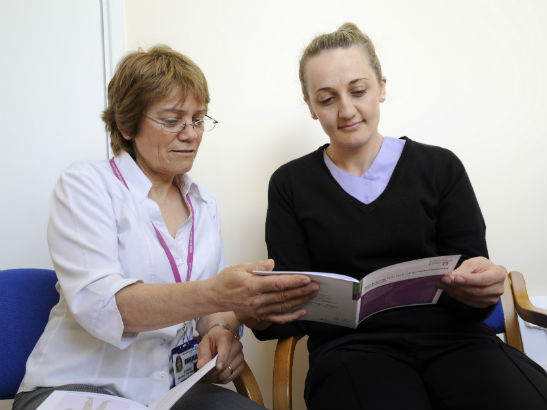If you follow the work of The Institute of Cancer Research, you’ll have seen a lot of buzz on our website recently about a class of drugs called PARP inhibitors.
The story behind PARP inhibitors is underpinned by 20 years of research here at the ICR in London, so we have been following developments closely. I thought I’d take a moment to update you.
The big news for PARP inhibitors came in October, with the announcement from the European Medicines Agency that its Committee for Medicinal Products for Human Use had recommended that olaparib be approved for women with ovarian cancer who have a BRCA mutation. The recommendation from the EMA is an important step forward in olaparib’s path to patients, and the drug will now be referred to the European Commission for a decision on EU-wide marketing authorisation.
Not only is olaparib the first PARP inhibitor to reach this stage but it is the first time a cancer drug targeted at an inherited genetic fault will have been approved.
With all the discussion in the media recently around access to the latest cancer drugs in the UK, the next big question is whether the NHS will pay for PARP inhibitors. The good news is that NICE has already started the appraisal process for olaparib, and estimates that the process should be finalised by September 2015.
In the meantime, NHS England has included olaparib on a recently announced list of new drugs which it will be considering making available through the Cancer Drugs Fund, so we’re waiting to see the outcomes of that decision in December.
Olaparib’s assessment for use on the NHS is a great example of how scientific research carried out here at the ICR can be translated into real benefits for patients.
Researchers at the ICR discovered that the protein produced by the BRCA2 gene plays a role in repairing damaged DNA.
Cells with BRCA mutations can survive by using an alternative DNA repair pathway which involves PARP proteins. But using PARP inhibitors such as olaparib to block this second pathway kills cancer cells with BRCA mutations, while leaving normal cells which have a working BRCA repair system unharmed.
This approach exploits a specific genetic weakness of cancer cells and provided a completely new approach to treatment.
The ICR’s Professor Alan Ashworth, who led the research showing that cancers with BRCA mutations could be exploited with PARP inhibitors, issued a statement on the committee’s decision. He said: “The European Medicines Agency's recommendation that olaparib be approved for some patients with ovarian cancer marks an important moment in the development of targeted treatments for cancer. It is a great example of how collaboration can take scientific principles and turn them into treatments – showing how close interaction between researchers here at the ICR, a UK biotech and drug company, NHS hospitals and charitable funding bodies can improve the outlook for cancer patients worldwide.”
We hope that this drug really will make a difference to many patients worldwide. The recent announcements on olaparib refer to the drug being used for people with ovarian cancer who have BRCA mutations, but research has also found benefits for patients with BRCA mutations who have other cancer types, such as breast cancer.
And earlier this month the Professor Johann de Bono spoke at a national cancer conference on early trial results indicating that PARP inhibitors could also benefit patients with prostate cancer who had mutations to DNA repair genes within their tumours.
You can read more about the ICR’s research on PARP inhibitors in this feature article on the ICR website here. We’ve very hopeful that our research will go on to have real benefits for patients with cancer treated on the NHS.
